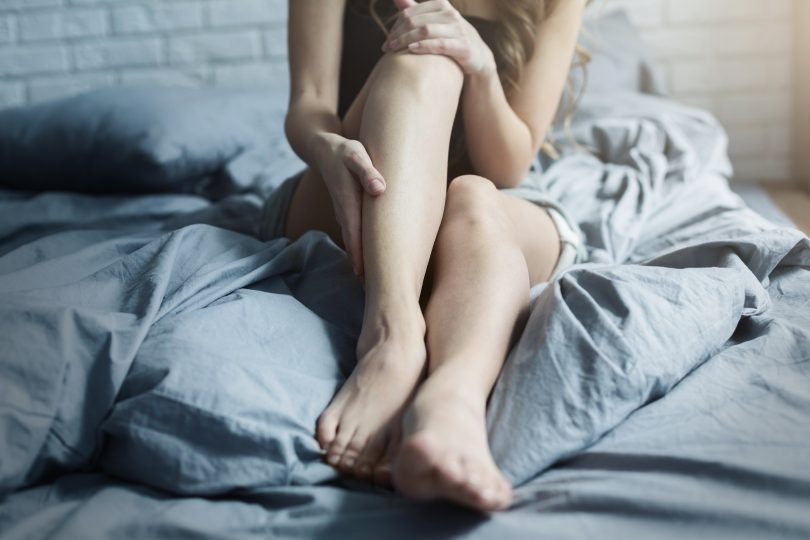As well as being useful in the treatment of anxiety, inflammation, and insomnia, some research suggests that CBD may also be helpful for those suffering from restless leg syndrome.
Restless legs syndrome (RLS) is a condition that affects many people from different walks of life. The condition is characterized by an uncontrollable urge to move the legs and a terrible feeling of inexplicable restlessness. Moving around alleviates the pain for some people, and the issues usually strike worst in the evening hours or late at night. RLS affects people of all ages but often gets worse with age.
RLS usually starts just after one sits down to relax or after sitting for extended periods in cars or airplanes. Stretching, shaking the legs and walking is the first port of call for RLS sufferers. Standard treatments typically include the use of Parkinson’s medication, but that often loses its effectiveness after a while. However, some people believe that CBD, a non-psychoactive compound in cannabis, is an effective way alternative for treating RLS.
CBD has been studied for some years and is known to contain anti-inflammatory and antibiotic properties. CBD is being used increasingly by people suffering from various conditions who want a natural, non-toxic alternative to prescription medications.
CBD, short for cannabidiol, helps with sleep as a sleep inducer. CBD also enables good quality (deep) sleep, and this contributes significantly with RLS. Another way in which CBD can potentially help RLS sufferers is by enhancing glutamate. Glutamate is an abundant neurotransmitter in the brain, and central nervous system involved intricately in almost every primary brain function.
As a metabolic precursor for another neurotransmitter called GABA, glutamate is also connected to sleep issues and insomnia. CBD also affects dopamine levels in the brain and reduces involuntary movements in some people.
While the root causes of RLS are still little-understood by doctors, at least 30 million Americans suffer from the condition chronically. There’s also no known cure for RLS although patients are told to avoid certain foods and drinks, as well as alcohol and nicotine. Nutritional deficiencies are also considered to be something which affects RLS.
But apart from trying to eat well, doing stretching exercises and having regular massages is something most RLS sufferers do as a matter of course. At the same time, people are only officially diagnosed with RLS if they suffer from the symptoms at least three times a week. There’s no known cure for RLS, only drugs like pain killers which numb the pain temporarily.
While there’s no clinical trials or in-depth studies for the specific effects of CBD on RLS, various patients who used the natural compound successfully for their condition have shared personal stories.
Even though CBD may not be a cure for RLS, it certainly can help with symptoms like pain, restlessness, and insomnia, if taken in the right dose. For those who suffer from this condition, a good night’s sleep is something precious and not to be underestimated.
The fact that CBD comes with no serious side-effects is non-addictive and non-toxic, are more good reasons why it could be a successful and viable solution for RLS sufferers.
For more stories like this, subscribe to the Medical Cannabis Weekly Newsletter.









